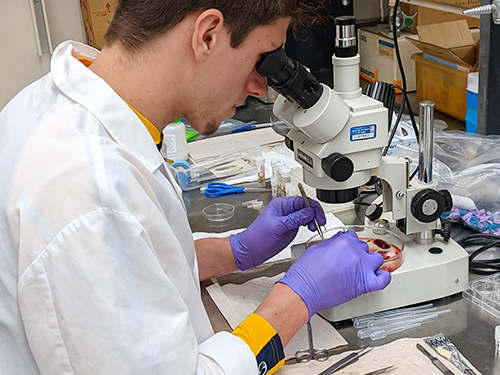Parasitologist

Image source: St. Norbert College
Parasitologists study parasites and their impact on human health and develop strategies for prevention and treatment.
Key Responsibilities
- Conducting research on parasites and their life cycles.
- Developing and testing treatments for parasitic infections.
- Collaborating with healthcare professionals and researchers.
- Educating the public on parasite prevention.
- Publishing research findings in scientific journals.
Required Qualifications
- Bachelor's degree in biology, parasitology, or a related field (minimum).
- Master's degree or Ph.D. in parasitology or a related field (often required for research positions, clinical parasitology, and policy development).
Career Pathways
- Parasitologist
- Research Scientist
- Public Health Consultant
Related Organizations and Employers
- American Society of Parasitologists: ASP
- American Association of Veterinary Parasitologists: AAVP
- World Federation of Parasitologists: WFP
- Centers for Disease Control and Prevention (CDC): CDC Careers
- World Health Organization (WHO): WHO Careers
- London School of Hygiene & Tropical Medicine: LSHTM Careers
- National Institutes of Health (NIH): NIH Careers
Science Careers Technology Careers Engineering Careers Mathematics Careers Medicine Careers